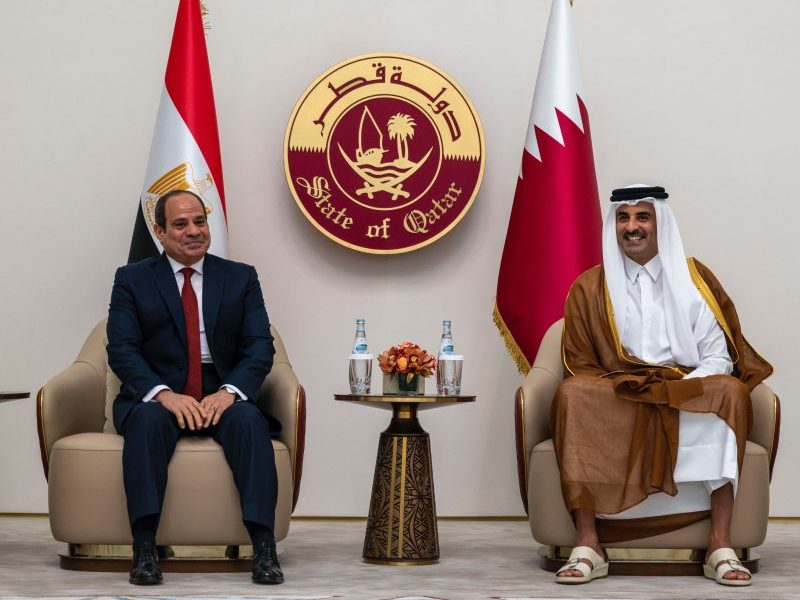Doha’s investments in Cairo date back more than five decades.
Egyptian President Abdel Fattah El-Sisi praised “positive developments” in Qatar and Egypt’s economic and trade relations as ties continue to warm after the 2017 regional diplomatic rift.
The Egyptian president’s remarks came on Saturday during a meeting with the Qatari Businessmen Association (QBA) in Cairo on the sidelines of the International Forum and Exhibition for Industry.
The QBA’s Chairman Sheikh Faisal bin Qassim Al-Thani headed the Qatari delegation at the event.
Commenting on Egypt and Qatar’s trade ties, Sisi said that there are various investment opportunities in major projects in Cairo, including the development axis of the Suez Canal area.
The Egyptian president expressed his readiness in facilitating Qatari investments in different fields while removing obstacles facing the private sector.
The latest remarks further signify a growing development in ties between the two Arab countries since they restored diplomatic ties last year following the 2017 GCC crisis.
The rift was triggered when Saudi Arabia, the United Arab Emirates, Bahrain, and Egypt imposed an illegal air, land and sea blockade on Qatar.
The quartet defended the move by accusing Qatar of allegedly supporting terrorism, though the Gulf state has vehemently dismissing those claims as “baseless”.
Last month, President Sisi visited Qatar in his first trip to the Gulf state since the regional rift, months after Qatar’s Amir Sheikh Tamim bin Hamad Al Thani made a similar visit to Cairo.
Bilateral trade ties have witnessed significant growth, with Qatar investing $5 billion in numerous fields in Cairo. More recent reports have claimed that Qatar is in talks with Egypt to buy some $2.5 billion of stakes in several Cairo-based companies.
QBA’s chairman said that Qatar investments in Egypt date back more than five decades.
Seeking economic support
Meanwhile, Egypt’s economy has been hit by the grain crisis in light of the ongoing war in Ukraine, with Cairo being the world’s top importer of wheat. A total of 80% of Egypt’s imports come from the Black Sea region, at the heart of the conflict between Russia and Ukraine.
The Egyptian government took out a $500 million loan from the World Bank this year and an additional $221 million from the African Development Bank to purchase wheat.
The country’s economy was already in turmoil, with the currency dropping in value against the US dollar. Inflation in the country hit 15.3% in August in comparison to at least 6% in the same period last year.
Almost a third of Egypt’s population of more than 103 million live in poverty, with families struggling to afford basic necessities as prices of food staples soar.
Seeking to find a way out of the crisis, Egypt turned to the oil-rich Gulf region and the international Monetary Fund.
According to the Associated Press (AP), Egypt’s foreign reserves dropped to $33 billion from $41 billion in February. The country’s foreign debt reached $158 billion in March, skyrocketing from $37 billion in 2010.







